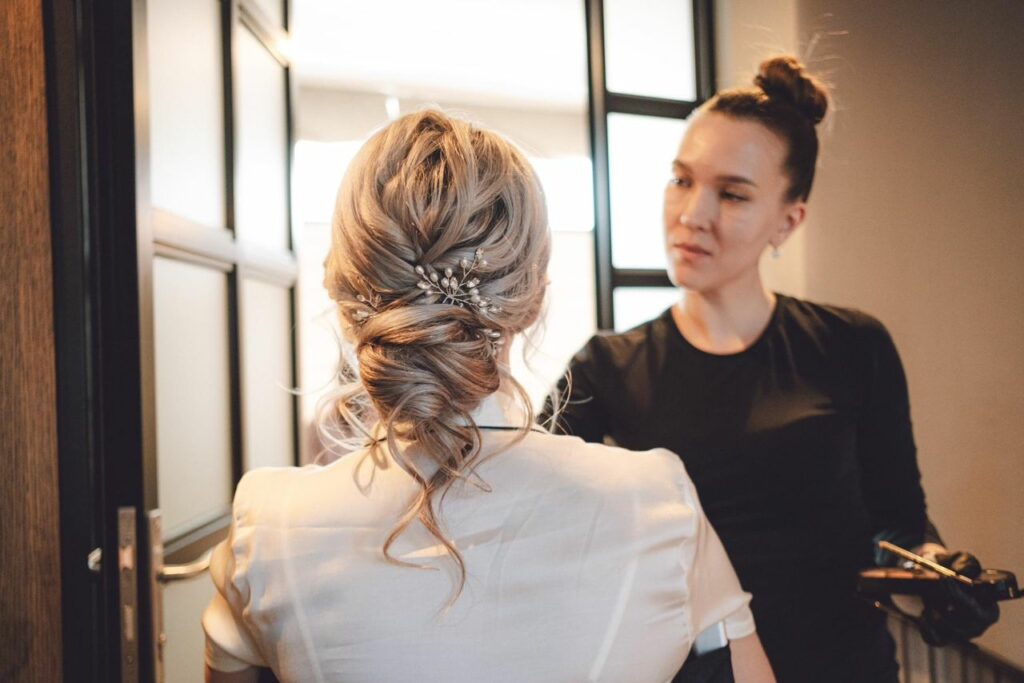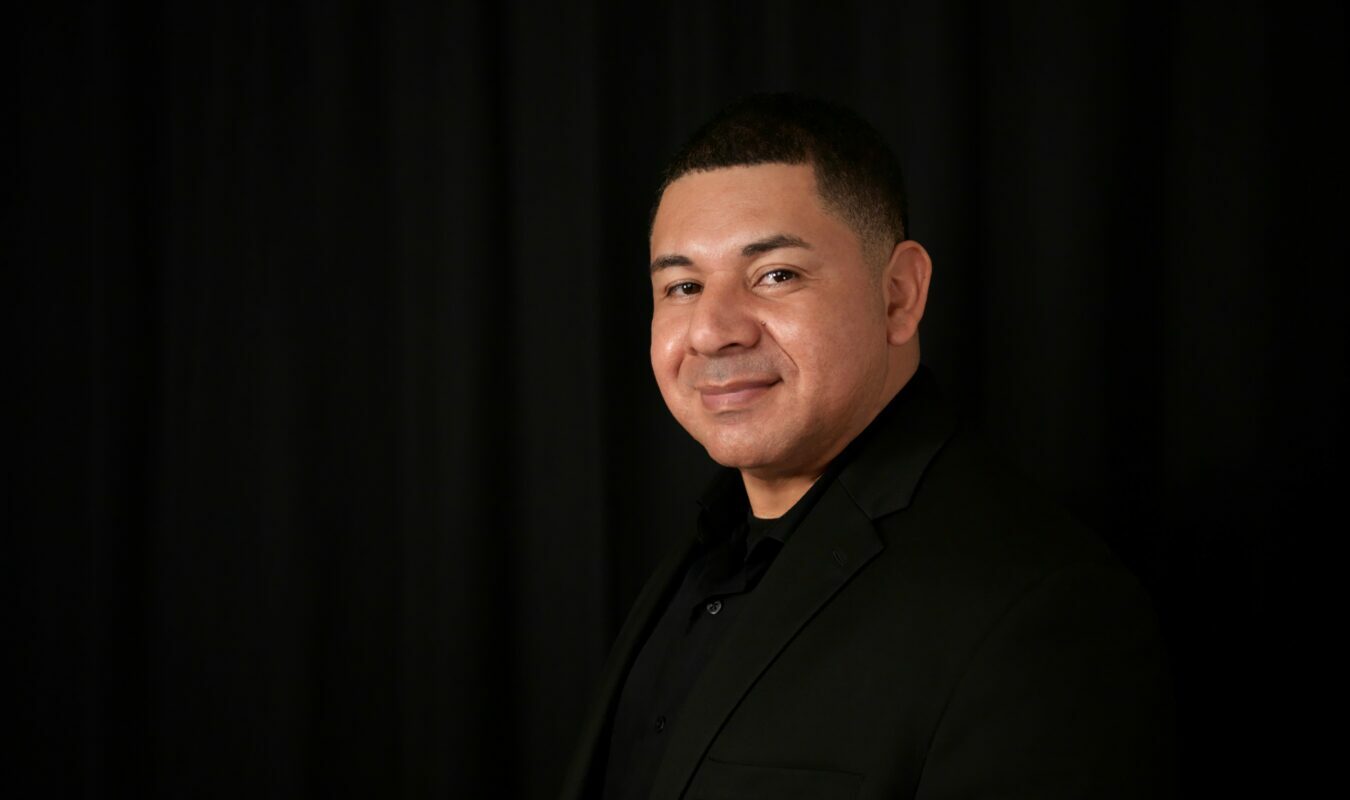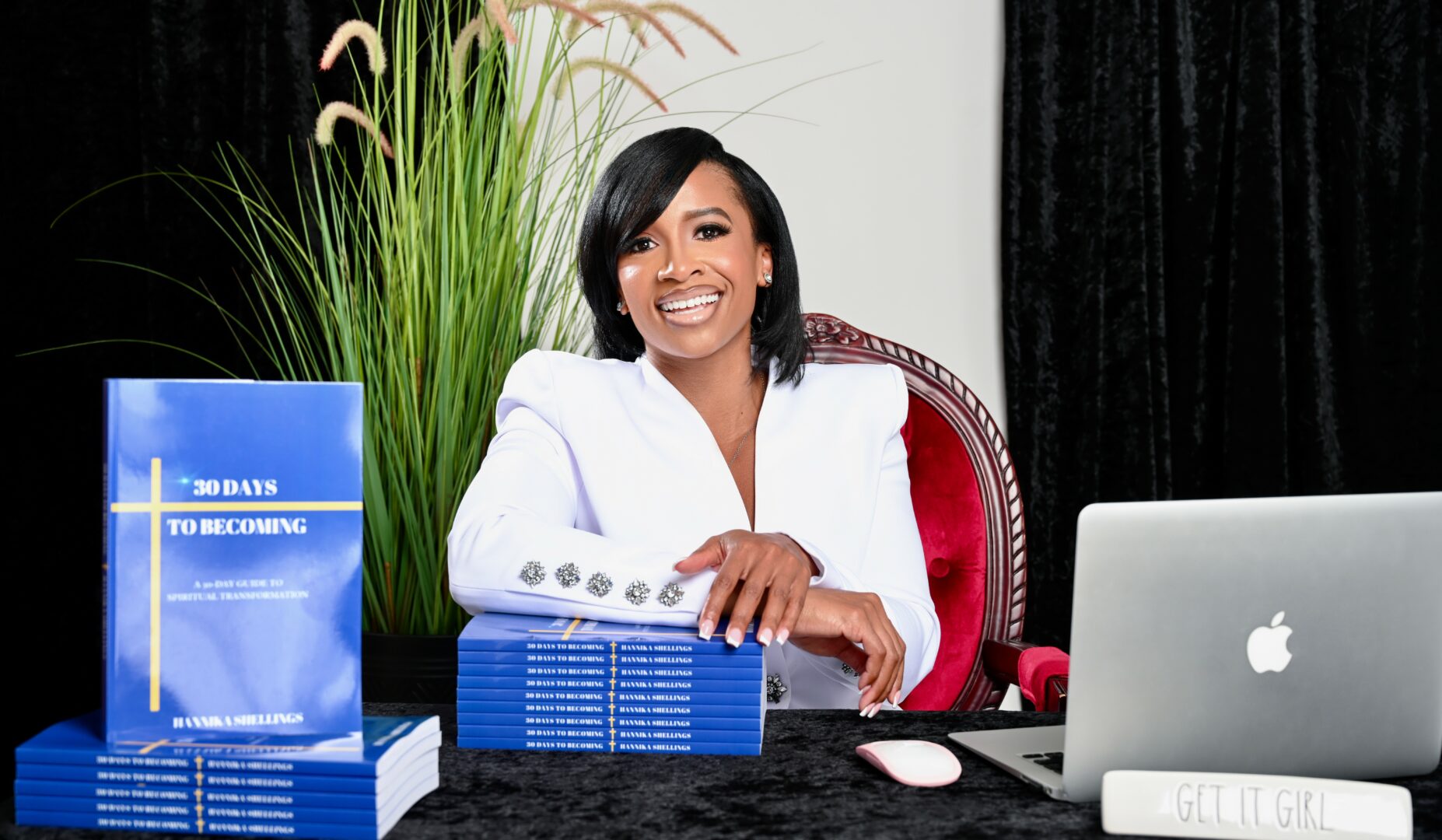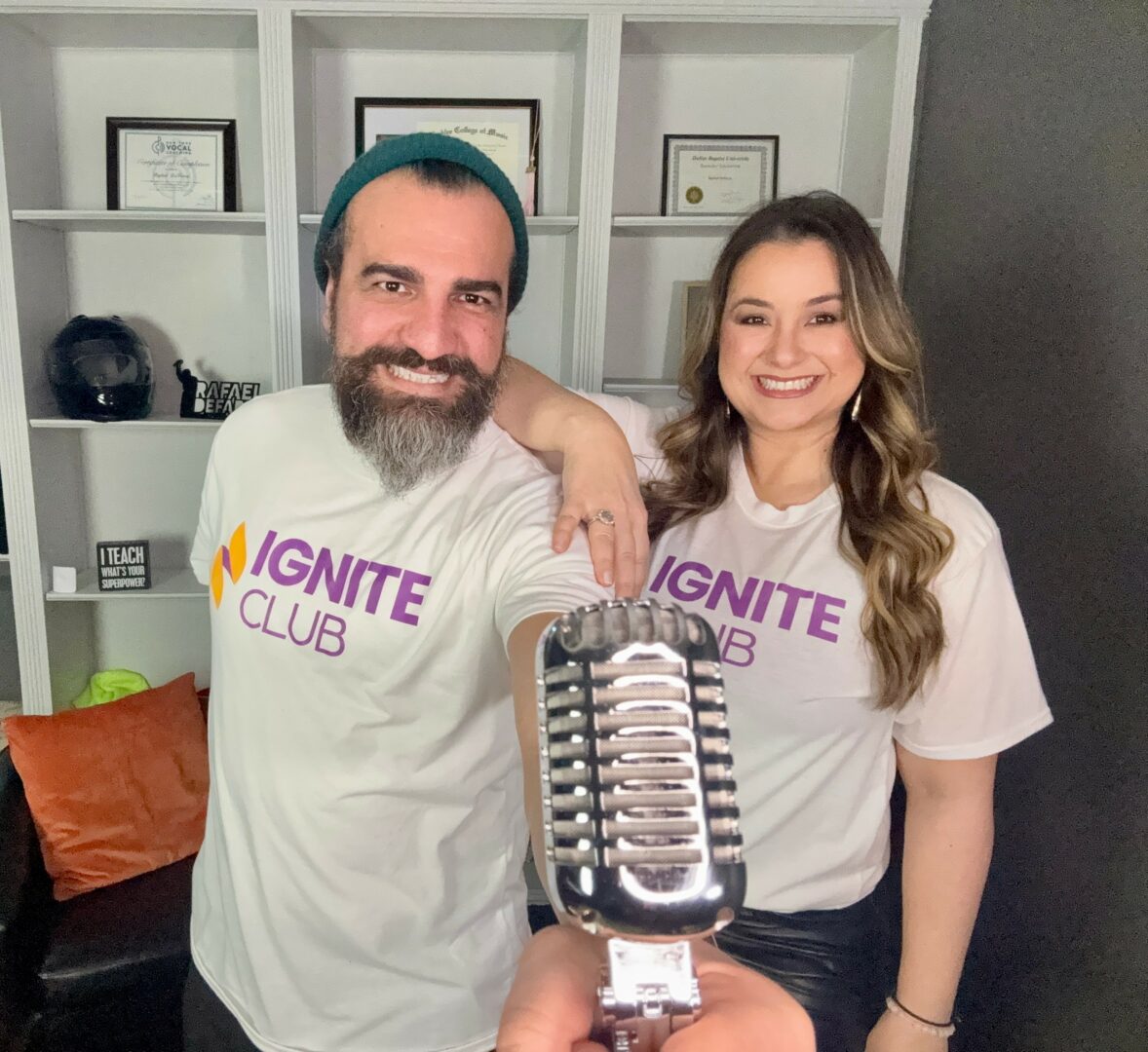Learning from one another is what BoldJourney is all about. Below, we’ve shared stories and insights from phenomenal artists, creatives and entrepreneurs who’ve successfully managed to overcome imposter syndrome.
Emilio J. Arellano

It’s funny – I personally believe that I haven’t yet fully overcome imposter syndrome. It’s a work in progress, which is very common in the creative journey. After starting in the independent film community of South America, freelancing my way through life as a designer, pursuing a master’s degree, working with some big-name brands, receiving multiple rejection letters from job applications, and now working in a state-of-the-art creative university, I have embraced it as a part of my personal process and should catalyze it for good. Read more>>
Delanie Fischer

I don’t think I’ll ever fully overcome imposter syndrome, since I’m someone who loves to try new things. However, here’s something that helps me relieve imposter syndrome when it creeps in: ~ The Confidence Catalog ~ I keep a list in the notes app of my phone that I’ve named my “Confidence Catalog,” but call yours whatever you want! It’s filled with projects I’ve done, kind words people have said about my work, philanthropical goals, and anything else that reminds me that I’m allowed to experience new opportunities, and I don’t have to be perfect to be worthy of them. Sometimes you just need a quick reminder about your experience, qualifications, results, and/or values before an important meeting, event, or starting a project. Add anything to this list that gives you a quick boost of confidence and courage — testimonials, quotes, awards, accomplishments, intentions, etc. Read more>>
Jennifer Flanagan

I never seem to meet any men who experience imposter syndrome but I have known a lot of women, in particular, who experience imposter syndrome, and I have had to overcome that myself. On a positive note, I do see this changing with younger women, and so perhaps in a generation or two this won’t be a “thing” anymore. Wouldn’t that be amazing? For women my age and older—so many of us spent many years working among and for mostly men, and our voices were often not prioritized, and sometimes we quite literally were not invited to the table/the meeting/the networking event. But here we are—mid-fifties or older, having spent decades working in our fields and suddenly we realize we really are the expert in the room. Read more>>
Radikal Creasy-rose

When I first started this work, I continually felt as though I was an impostor, specifically in the vein of “I’m just some kid.” In most of the formal jobs I’ve worked in the past, I genuinely felt like a newbie to a point where I downplayed my own skills. Working for myself has allowed me to really show how I can pull a lot together by myself and I continue to prove myself (to myself and to others) on the daily as I navigate this complicated world of entrepreneurship. Read more>>
Alina Butina

When I started painting in 2020, imposter syndrome was overwhelming. My first pieces left me so self-conscious that I left them by the garbage, hoping someone might take them. Even one negative comment would shake me. But over the years, I realized that perfection isn’t the goal—consistency and growth are. Art taught me self-acceptance, and with each piece, I built resilience. Now, four years later, being accepted into the Beverly Hills art show feels like a testament to overcoming those doubts. Imposter syndrome may linger, but I’ve learned to protect my art, embrace my journey, and keep creating regardless of criticism. Read more>>
Emaan Faith

The only way to overcome imposter syndrome is to actually do the work. The truth is, everyone suffers from imposter syndrome—especially since we’re often our own worst critics. As an artist, I used to struggle because the work I created never quite lived up to my imagination. There’s always a skill gap. But the only way to close that gap between your vision and your technical abilities is through experimentation, practice, and consistency. With each painting, I can visibly see myself getting closer to my vision. Read more>>
Lenell Camacho Santa Ana

I overcame imposter syndrome by refusing to believe that the very real body responses I feel in a world and in an industry that tells me I don’t belong are some mental health issue or is something wrong with me that needs fixing. I stopped trying to “lean in”–or whatever latest self help guide to women’s success is all the talk–and decided to trust my body. My body is highlly attuned to the energetics of what is around me. There are lots of cues and signals that my brain and body pick up on from my environment that let me know when others are having their own response to my presence and whether I am welcomed and safe. Read more>>
Alicia Mcgee

I was born a twin. From birth, there has always been she and I. Growing up, we were joined at the hip! We did everything together. There came a time where I got tired of not feeling like my own person and having to dress a certain way, do a certain thing, and I began to find my own way. I wanted to stand out and not always be seen as “Felicia’s Twin”. I carried that attitude into my adulthood. I always wanted to be set apart. I began early by simply being my own person and not being ashamed to let my colors show regardless to what others thought. It has since been my staple! Because I will always have someone that looks like me and carries my face, I had to find a way to make myself shine and set apart so I wouldn’t be like anyone else. Read more>>
Yusef Mars

Authenticity is key…
I had to know myself, “Man know Yourself”, my likes and dislikes by chasing my higherself.
One way to overcome that was to validate my feelings- reframe my thoughts and challenge any negative self talk.
Focus on facts and evidence of my accomplishments by celebrating each milestone and learn from my failures.
Cultivate self compassion while reflecting and sharing my setbacks. Read more>>
Maria Schmitt Schmitt

1. Compare Less, Create More
Social media can be a double-edged sword. It’s easy to fall into the trap of comparing yourself to others. I know I do all the time! But lately I’ve tried to remind myself that what you see online is often the highlight reel. Every photographer, regardless of their experience level, has moments of doubt. They have moments of feeling burnt out and uncreative. I try to focus on my own style and vision, and remind myself where my focus is. If I spend my entire photography career comparing myself to other’s work, I’ll never get anywhere. Read more>>
Kelly Tallaksen

Although many times I have felt that people do not hear my message because it’s the same old rhetoric they hear from other leaders in my field, I bring myself back to my divine purpose and realize that my message is strong, valuable, and always delivered with my inner truth and unrelenting passion for my work. For many years, I have lived with so many negative memories flooding my body that have kept me trapped in years of feeling unworthy with no understanding of how I could free myself from the emotional torment. The profound healing process I went through has not only changed my life but has led me to a very rewarding career where I help others see their true value no matter what their childhood experiences taught them. Read more>>
Gisell Ale

I didn’t realize I was experiencing imposter syndrome until I heard other creatives discussing how they were dealing with it. My imposter syndrome stemmed from my lack of confidence in myself. I made a plan to shift my mindset by building up my confidence in my work, not focusing on the negative, and not comparing myself on social media. Read more>>
Sophia Puliafico

Imposter syndrome shadows Gen Z like an unshakable shadow. We grew up with social media exposing intimate parts of our lives, encouraging us to constantly compare ourselves to our peers. Now, our ability to secure jobs and sustain ourselves hinges on how polished and competent we appear on LinkedIn. I’d be lying if I said imposter syndrome wasn’t making my palms sweat as I respond to this interview, wondering if my insights will measure up to other interviewees. However, a critical aspect of overcoming imposter syndrome is being comfortable with embarrassment. Read more>>
Dr. Adrain Artary

Overcoming imposter syndrome has been a journey of self-discovery, deep reflection, and learning to recognize the true value of my experiences and accomplishments. Growing up, I faced challenges that demanded immense resilience and determination—qualities that have consistently propelled me forward. These traits carried me through an extraordinary educational journey, culminating in earning my doctoral degree from Clark Atlanta University (CAU) at just 26 years old. My aspirations and sense of self-efficacy took root in early milestones, such as being a Bill and Melinda Gates Scholarship recipient, graduating as valedictorian of my class at D. M. Therrell High School, and later serving as Student Government Association President at CAU. While these achievements marked the beginning of understanding my purpose, they also introduced the first echoes of imposter syndrome. Read more>>
Christina Easton

I am a constant imposter, becasue I am always learning to master new things I ‘ve always had a thirst to learn, and when we learn new things it can be overwhelming and anxiety can creep in. I used to get reactive and I would physical feel exhausted form these feelings. However, I would always push through and figure it out. I also tied my worth to being succesful… talk about high expectations to “win” and “achieve” and always push through no matter what, Read more>>
Ilana Greenberg

Honestly, I still grapple with imposter syndrome, but I’ve learned to acknowledge and manage those feelings. As a self-taught painter, I often feel like an outsider in the art world. Early on, I doubted my skills and feared being discovered as a fake. I compared myself to formally trained artists, feeling inadequate. However, I realized my unique journey and experiences bring a distinct perspective to my art. Read more>>
Denise Erez

There was a time when, no matter how much I learned, how hard I worked or or much I accomplished, I just couldn’t shake the feeling that I didn’t know enough to really belong. I’d think, “Who am I, just this young girl, to guide people on something as important as their health and their life.” Read more>>
Gregory Leon

Despite what some would call a celebrated career and numerous accolades, I still face a persistent and often unspoken challenge: impostor syndrome. Even after making my mark in Milwaukee’s vibrant culinary scene, I’m often grappled with a nagging feeling that i might not quite belong. Read more>>
Chella Levesque

In my professional journey, I have encountered imposter syndrome, which often made me doubt my abilities, achievements and overall inadequacy at being at the “big kids table”. At the time I did not know that what I was experiencing was imposter syndrome and to overcome this it didn’t happen over night but over years of growth work. I adopted several strategies that helped me gain confidence & grow. Read more>>
Leigh Larie

Imposter syndrome? Oh, honey, I know it well. That sneaky little voice whispering in your ear, telling you you’re not good enough, not smart enough, not experienced enough. It’s a real struggle, especially when you’re constantly pushing yourself to grow and step into new spaces. Read more>>
Nadine Clay

Imposter syndrome runs rampant in a world where technology allows us to see anything and everything at all times. Many business owners, especially those in creative lines of work, have felt the impact of comparing. Thankfully, as a creative, we can embrace the fact that one type of art will not please all eyes. Picasso and Monet are two beloved artists. But can someone like one and not the other?- Absolutely. Read more>>
Katie Hampton

Take it or leave it: actively choose the right voice to listen to. I don’t think there is an performer on this planet who hasn’t had their intermittent seasons of Imposter Syndrome. Unless you’re a narcissistic gift from the heavens, most performers struggle with wondering whether they even belong where they are. As I grow and continually learn about myself as an actor and comedian, I’ve realized that the key to getting over Imposter Syndrome, is knowing which voices to listen to. Read more>>
Sam The Woo

Imposter syndrome is not something to overcome in my world. It is a necessary step in growth, and I see that experience as both a tool and a sign of stretching myself into new forms. So much of the artistic work I do is not something I’m officially trained in or have experience with. The act of creating these things is a result of an innate curiosity I have for them, and in a sense its an honor to be an imposter. I’m honoring my curiosity foremost by even attempting to do that thing. Whether or not I “should” be there becomes secondary to the importance of me having a human experience of curiosity and attempt. Read more>>
Ebony Jones

I overcame imposter syndrome by overcoming depression. I stopped listening to the voice that told me that I was average. I stopped listening to the voice that told me I couldn’t do the things that I wanted to do & become the woman that I wanted to be. I overcame it by reflecting on the times that I didn’t believe that I would make it through. I acknowledged the fact that I made it through each & every time. I acknowledged the fact that I had uplifted so many people just by being me. I watched how God continued to open up doors for me with people from all walks of life. I listen to people who spoke life into me when my voice would get low, not silenced. But most importantly I listened to the Creator when she told me that I am really that Woman! The creator told me that I would help change the lives of many people. Read more>>
Ben Mirabelli

I haven’t really overcome it, it’s a constant battle. I combat this by surrounding myself with folks that are supportive of my works and endeavors. These folks always affirm for me, mostly through their support that I do indeed produce quality creations and I am indeed, worthy. Read more>>
Holly Eaton

When I first started sharing my recipes and homemaking tips online, I constantly questioned myself. Imposter syndrome crept in more often than I’d like to admit, whispering doubts about my abilities and worth. Who was I to tell anyone how to cook or inspire others to gather at the dinner table? But over time, I learned to treat those doubts like an old, unwelcome friend—acknowledging their presence but not letting them take the wheel. Read more>>
Jaci Kjernander

I used to struggle with intense imposter syndrome. Even though I was acting and making films, I hesitated to call myself an ‘actor’ or ‘filmmaker,’ feeling like those titles belonged only to A-listers or those earning a steady living from it—which has always been my goal. Over time, though, I realized that showing up and putting in the work means I am those things. Every day I’m working on my craft, whether it’s in front of the camera, writing, or producing, which is the heart of what it means to be an actor and filmmaker. Read more>>
Jonathan Minton

I only recently learned about this condition called Imposter Syndrome. And while I completely understand it I am fortunate to have avoided it for the most part. You see, my work has a very simple theme: Breeze Blocks, concrete building blocks used in midcentury architecture. I use these shapes as a starting point (muses if you will) to explore my own expressions of them. Simply put, I feel pretty safe in my niche of work because I see so few (almost no-one) doing anything like I do. This gives me confidence and enjoyment to create designs that almost always surprise and delight. Im even more pleased when some people have no idea what a breeze block is. Read more>>
Wendi Phillips

I’ve overcome imposter syndrome by learning these truths.
1. No one knows what they are doing… Even if they are the most skilled, learned, or trained individuals, even masters still have room to learn and improve.
2. The world is constantly changing and evolving so you can reach the epitome of anything and become irrelevant moments in time later. Read more>>
Sam Kim

The first step in overcoming my imposter syndrome was realizing and understanding that it was a false belief that I am not capable. Whether it’s speaking up on my own opinions, taking up space, feeling like I am a worthy individual with valuable input, I’ve gradually shed this disbelief in myself by applying myself everyday no matter how small the effort. Creating content and making music everyday has helped me to shift the focus on what other people might be thinking about me to strengthening my own self belief. Read more>>
Fefi Rosado

Imposter syndrome isn’t something I feel you ever overcome fully. It’s a continuous process, and I find myself working through it in different areas of my life. The most important technique for me is self-talk. When I feel those doubts creeping in, I take a moment to have an honest conversation with myself. I remind myself of what I’ve accomplished, the reasons I’m in the room, and the unique perspective I bring. This simple act centers me and helps me refocus. It’s about acknowledging those feelings but not letting them have the final say. It’s a practice of reminding myself of my worth and the hard work that’s brought me here. Read more>>
Alicia Hilsher

I think I’ve been working through imposter syndrome since the day I decided to pursue creative careers. There is something very vulnerable about sharing something you personally created with the world. I started my journey ten years ago as a photographer, running a wedding photography business with my husband. From there, I branched out to other forms of photography. It was my first experience in the creative space and as I gained experience I also gained confidence. Read more>>
Brendan Foery

I don’t think I have overcome it. However, I have learned how to navigate it better. I don’t think imposter syndrome ever fully goes away. If you’re striving toward something and pushing yourself in specific areas for the sake of growth, then you will frequently find a little insecurity out of your comfort zone. I don’t think imposter syndrome is something to be rid of, just something to manage. It can even be healthy. It’s a good reminder that we are imperfect and that humility in the process is important. Read more>>
Annie Hetrick-dahm

I believe in not being a perfectionist. Thinking too much about an end product or comparing my work to an ideal image hinders my confidence and freedom to create. I applied to galleries and public spaces to show my art before I had produced many of my current favorites. I had no idea what I was in for when I booked my first solo art exhibition, but my naivety towards what I was signing up for was necessary to put myself out there artistically without overthinking it. Not knowing how hard something is can give me the courage to go through with it. The trick for me is to stay motivated without comparison or competition. Read more>>
Angelina Kolobukhova

When I decided to be a jazz vocalist, I felt like I was ‘behind’ my peers because it was a decision I made halfway through college. I’ve been playing piano since I was five and singing since I was nine, having participated in many competitions and being in love with music, but initially I was scared to go fully into music and chose a different path. At first I really wanted to prove to myself and my family (who wasn’t initially supportive of the decision) that this is the right career for me, and I was eager to learn anything I could and grow in that sphere. Along with my love for music, this desire was also driven by this impostor syndrome. Read more>>
Christina Katz

Imposter syndrome is something I have to battle almost every day. It’s not really something I think I can ever fully overcome, so I take it day by day. Something that helps me immensely is actually to look up ancient and antique jewelry examples. These are pieces that the world of Jewelers sees as “amazing”, “stunning”, or “masterful” works of art. As a Jeweler, when I examine these works I can see the beauty, but also every scratch, bent prong, slightly off setting, or uneven filigree. And I think about how the people who made these are considered “masters”, and yet here are their flaws. So if these people can make mistakes in handmade works of art and it can be considered remarkable, why can’t I? What stops me from making and loving my jewelry regardless of any foibles or flaws in them? The answer is nothing. Because I am a Jeweler. Read more>>
Maddy Corbin

Imposter syndrome is a fickle bitch! I had many times in my early creator career that I let it get to me. I would feel like there is no way someone would want to watch this or care about this or I would mind race about what others that knew me prior would think. It truly is a slow growth to overcome imposter syndrome but I feel it helped the most to remind myself daily that we are all humans, trying to figure out this shit show. The influencer you love watching her daily life? She at one point questioned if anyone would care. Read more>>
Byron-gabriel Proutt

May I be completely honest? I have not overcome imposter syndrome. It is something that I do not think I want to overcome and let me tell you why. When I step into a room, situation or approach a new project, I like that I am a bit nervous and have that “Oh shit, I should not be here, and they all know it” feeling. In that moment, to proceed, I must talk to myself. Remind myself that my ancestors helped me get here. FOUGHT for me to get here.
With those first few thoughts, not only does it help, but it makes me proud. Which in my opinion, is different than having an air or a hint of entitlement. Read more>>
Jeronimo Arias Gomez

Overcoming imposter syndrome is often an ongoing journey, especially for entrepreneurs who are building something unique. For me, it was about finding confidence in small but consistent victories. In the beginning, I focused on each project as a learning experience. Connecting deeply with clients, understanding their needs, and making sure we were part of their team helped me see our value. Read more>>
Erica Bogart

I remind myself that every creative journey has its challenges and moments of doubt—mine included! Surrounding myself with a supportive community has been a major factor; sharing my struggles and experience with other professionals reminds me that none of us are alone in our self-doubt and we are all part of this big creative community together and can always learn from one another. So, for me, overcoming imposter syndrome is a continuous practice of self-acceptance of the current season that I am in. I also make a point to celebrate my growth, whether it’s a new skill I’ve mastered or positive feedback from a client. Read more>>
Nelli Shine

To deal with my imposter syndrome, I focus on learning and practicing all the time. What helps me the most is being honest with my clients. I don’t promise what I can’t deliver. As long as clients know my limitations upfront, they can decide whether to book my services or not. For example, when I was starting out, I offered free trials and explained that I was a beginner who needed practice. If a client liked my work and chose to book me, that was great! If not, I took it as practice and reminded myself that I was still learning. Read more>>
Cody Sloan

I really struggle with imposter syndrome when I’m working, especially when I feel like the stakes of a project are very high. At its most basic level, it can feel really vulnerable to put yourself out there as an actor, whether it’s an audition, a first screening, or an opening night. What really helps me be more easy on myself and feel deserving in those moments is reminding myself that everyone feels this way. Even the actors I really look up to and imagine “oh, there’s no WAY that person doubts themself.” One of my teachers in grad school, the wonderful Marco Barricelli, would say that he would doubt himself and feel insecure all the time at the start of a process and that it’s something he started to recognize as just one part of his process. And something that would shift over time. Read more>>
Karina Castillo

Overcoming imposter syndrome as a Mexican-American Latina fashion designer can be a challenging yet rewarding journey. Imposter syndrome, is the feeling of doubting your abilities and feeling like a fraud despite evident success. This is very common among many professionals, especially those from marginalized communities. Some things I try to do are; acknowledge my achievements, Seek Support from my friend/peers, embrace my experiences and growth, and lastly know that if it wasn’t for who I am and what I do I wouldn’t be where I am today. Read more>>
Andrea Knowles

I’m not sure anyone ever fully overcomes imposter syndrome, but having belief in one’s skill-set and knowledge base, as well as being one’s own biggest cheerleader definitely keeps me on the right path. I remind myself regularly that I can do anything I set my mind to, and then I DO it in the present and don’t wait for anyone to help get me there. Everyone thinks they are an imposter; the trick is to not tell yourself so when a project or job, or anything else, is on the line. Read more>>
Skyler Jenkins

I often still feel this, even after 10 years of Filmmaking & unbelievable responses I’ve received from those seeing my work… But, when I finally leaned into the Reflections from Others, revealing what is Unique about me & my style- that’s when I found my Super Power & the way I can Shine Authentically & Stand Out from Others. Read more>>
Sarah Maxey

I feel like imposter syndrome is something that most entrepreneurs experience, especially at the beginning of their journey. I would be lying if I said I don’t still struggle with imposter syndrome from time to time. I don’t know if the feeling of thinking I’m just “faking it till I make it” will ever wear off. But once I realized that most business owners (and most adults in general) are all just basically “faking it till they make it”, I felt more comfortable and confident. Because the reality is, that most of us don’t know what we are doing and just taking it one step at a time. Stepping out of your comfort zone will be UNCOMFORTABLE, but that doesn’t mean you are not capable. Growth is scary because it’s new – I am constantly reminding myself of that. Read more>>
Heather Gibson

When I first became an affiliate for pawTree, a pet food and supplement company, I experienced rapid success and rose through the ranks quickly, earning several awards. I also earned my first incentive trip, a cruise to the Bahamas. Instead of feeling proud, I struggled with imposter syndrome, questioning if I truly deserved it all. I didn’t want to come down to the gathering with the rest of the company the night before boarding the cruise ship. I felt that somehow they would see me and wonder why I was there, To work through these feelings, I started listening to uplifting podcasts, stayed focused on my work despite my doubts, and attended retreats that helped me connect with other leaders. Read more>>










